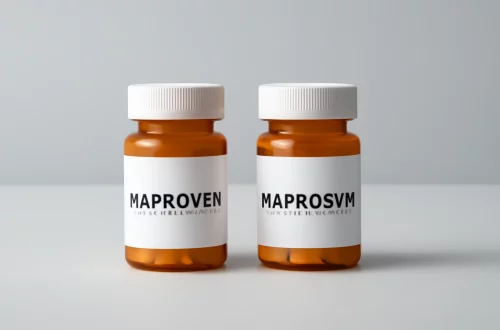
Understanding Dog Behavior Changes After Vaccination
Understanding the intricate world of dog behavior is essential for any pet owner. Dogs communicate through a variety of means—body language, vocalizations, and their reactions to different stimuli in their environment. Just like humans, dogs can experience a range of emotional and physical changes based on their life experiences, including medical treatments like vaccinations.
Vaccinations are a vital component of responsible pet ownership, protecting dogs from various infectious diseases. However, the process of vaccination can sometimes result in noticeable changes in a dog’s behavior. These alterations can stem from the physical effects of the vaccine itself, anxiety related to the veterinary visit, or even changes in their routine. Understanding these behavioral shifts is crucial for pet owners to provide the necessary support and care during this period.
Recognizing that your dog may exhibit different behaviors post-vaccination can help you respond appropriately. It’s important to approach these changes with an informed perspective, ensuring that you can distinguish between normal reactions and signs that might warrant further attention. This article delves into the various aspects of dog behavior changes following vaccination, offering insights that can help you better understand your furry friend’s needs during this time.
Physical Reactions to Vaccination
When a dog receives a vaccination, their body initiates an immune response. This biological process can lead to various physical reactions, which in turn may affect their behavior. Common side effects of vaccinations include mild fever, lethargy, soreness at the injection site, and sometimes gastrointestinal upset.
After vaccination, it’s not unusual for dogs to feel a bit under the weather. Just as humans might feel fatigued or achy after receiving a vaccine, dogs can exhibit similar symptoms. Lethargy is one of the most common reactions; your dog may seem less energetic and prefer to rest more than usual. This behavior is typically temporary, lasting only a day or two.
It’s important to monitor your dog’s behavior closely during this time. If your pet is unusually quiet and prefers to lounge around, it’s likely a normal response to the vaccine. However, if you notice more severe symptoms—such as persistent vomiting, excessive drooling, or a significant change in appetite—it’s crucial to consult your veterinarian.
Pain or discomfort at the vaccination site can also contribute to behavioral changes. Your dog may be more sensitive to touch, which could make them less playful or more withdrawn. This reaction is generally mild and should resolve within a few days. Providing a comfortable and quiet space for your dog to rest can help ease their discomfort during this recovery period.
Understanding these physical reactions can help you provide the right care for your dog post-vaccination. A calm environment, plenty of water, and gentle encouragement to eat can go a long way in helping your pet feel better. Always keep an eye on their condition, and don’t hesitate to reach out to your veterinarian if you have any concerns about their health.
Emotional Responses and Anxiety
In addition to physical reactions, vaccinations can also trigger emotional responses in dogs. The experience of visiting the veterinarian can be stressful for many pets. The car ride, the smells of the clinic, and the presence of other animals can create anxiety. For some dogs, the actual process of receiving a vaccination can be frightening, leading to behavioral changes that reflect their emotional state.
Dogs are incredibly perceptive and can pick up on the emotions of their owners. If you are anxious or stressed about the vaccination process, your dog may sense this and mirror your feelings. This phenomenon can lead to heightened anxiety levels in your pet, causing them to act more skittish or fearful than usual.
Post-vaccination, your dog might exhibit signs of stress or anxiety, such as excessive pacing, whining, or seeking out your comfort. It’s essential to provide a reassuring presence during this time. Speak softly to your dog, offer treats, and engage in calm, gentle play to help alleviate their nervousness.
Creating a positive association with the vet visit can also be beneficial for future vaccinations. Consider bringing your dog to the clinic for short, non-medical visits where they can receive treats and affection. This can help reduce their anxiety during actual vaccination appointments.
Additionally, some dogs may experience a temporary behavioral shift, such as increased clinginess or withdrawal. They might seek more attention from you or, conversely, choose to isolate themselves. Understanding these emotional responses can help you provide the appropriate support, ensuring that your dog feels safe and secure as they navigate their feelings post-vaccination.
Behavioral Changes in Routine and Environment
Vaccination can also disrupt a dog’s routine, leading to noticeable behavioral changes. Many dogs thrive on consistency and predictability. When their routine is altered due to a trip to the vet or recovery time after vaccination, they may exhibit signs of confusion or distress.
Changes in behavior might include increased barking, restlessness, or even destructive behaviors if they feel anxious or bored. For instance, a dog that is typically calm may become more hyperactive or agitated following vaccination. This is often a response to the change in their environment and routine rather than a direct reaction to the vaccine itself.
To help your dog adjust, try to maintain as much of their usual routine as possible. Stick to regular feeding times, exercise schedules, and playtime. If your dog is lethargic after vaccination, it’s important to be patient and allow them time to rest. However, gentle encouragement to engage in light activities, such as short walks or interactive play, can help them regain their energy and mood.
Additionally, consider providing mental stimulation to keep your dog engaged. Puzzle toys, treat-dispensing devices, or simple training exercises can help redirect their energy and focus. This is especially useful if your dog seems restless or anxious during their recovery period.
Understanding that behavioral changes can stem from both physical and emotional responses to vaccination can help you respond appropriately. With patience and care, your dog will likely return to their normal self in no time.
When to Seek Professional Help
While many behavioral changes following vaccination are temporary and manageable, there are instances when it’s crucial to seek professional help. If your dog exhibits severe or prolonged reactions, such as persistent lethargy, vomiting, or any signs of distress that do not improve within a day or two, it is essential to consult with your veterinarian.
In some cases, dogs can experience allergic reactions to vaccines, which may manifest as swelling, difficulty breathing, or hives. These symptoms require immediate medical attention. Even if the symptoms are not severe, your veterinarian can provide guidance and support, ensuring your dog receives the best care.
Additionally, if your dog’s behavioral changes significantly impact their quality of life or your relationship with them—such as severe anxiety or aggression—it may be beneficial to consult a professional dog trainer or a veterinary behaviorist. These experts can help you develop a tailored plan to address your dog’s specific needs, ensuring they feel safe and secure in their environment.
Lastly, maintaining open communication with your veterinarian about your dog’s vaccination history and any behavioral changes can provide valuable insights. This information helps in making informed decisions about future vaccinations and overall health care.
In summary, while changes in behavior after vaccination are often normal, being observant and proactive is key to ensuring your dog’s well-being.
**Disclaimer:** This article is for informational purposes only and should not be considered medical advice. Always consult a veterinarian for any health concerns or before making decisions regarding your pet’s health care.




